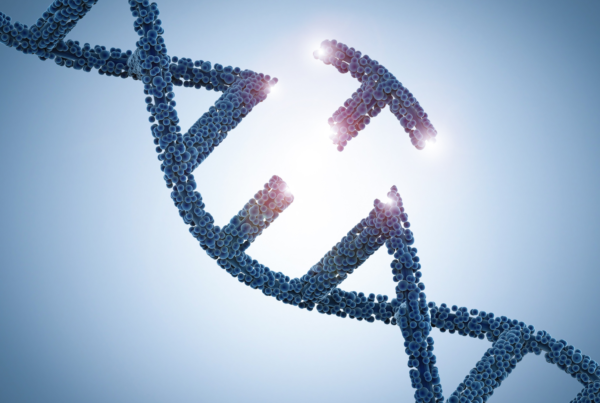Future of Cancer Immunotherapy: Neoantigen Prediction with Next-Generation Sequencing
In the realm of cancer immunotherapy, harnessing the body’s immune system to combat malignancies has ushered in a groundbreaking paradigm shift. The recognition of neoantigens, arising from cancer cell DNA mutations, plays a pivotal role in this innovative approach. Next Generation Sequencing (NGS) is instrumental, enabling the rapid analysis of genomic landscapes and paving the way for personalized cancer immunotherapies.
However, sequencing for personalized vaccines introduces challenges such as sample quality, combination of multiple sequencing strategies, and turnaround time. Overcoming these hurdles requires innovative solutions and ongoing advancements. In conclusion, the promising personalized vaccine strategy, despite its challenges, holds significant potential in advancing precision medicine.
Here we explore the critical aspects of personalized vaccine sequencing, addressing
- The need for a combination of sequencing strategies
- The difficulty in obtaining high-quality samples
- The risk of tissue contamination
- Bioinformatics complexities,
- The urgency of swift turnaround times
- And the integration of these approaches into clinical workflows.
Download the neoantigen development case study or discuss your project with us
If you would like to download a real example for a neoantigen development project of GenomeScan or if you would like to discuss options for your own project with us, you can directly jump to the relevant sections using below buttons.
Cancer Immunotherapy and the Importance of Neoantigens
Cancer immunotherapy represents a groundbreaking paradigm shift in the treatment of cancer, harnessing the power of the body’s own immune system to combat malignancies.
Unlike conventional treatments that directly target cancer cells, immunotherapy mobilizes the immune system’s natural defenses to identify and destroy cancerous cells selectively. At the forefront of this innovative approach is the recognition of neoantigens—novel proteins arising from mutations in the DNA of cancer cells.
Neoantigens play an important role in cancer immunotherapy thanks to their unique nature. As cancer cells undergo genetic mutations, they generate abnormal proteins not found in healthy tissues. These neoantigens serve as markers that distinguish cancerous cells from their normal counterparts. The immune system, equipped with the ability to recognize foreign entities, can then be stimulated to mount a targeted response against the aberrant cells, marking them for destruction.
Next-Generation Sequencing (NGS) as a Powerful Tool in Cancer Immunotherapy
Next-Generation Sequencing (NGS) emerges as a keystone technology in unveiling the intricate landscape of neoantigens. NGS enables the comprehensive and rapid analysis of the entire genomic repertoire, identifying mutations and alterations that lead to the formation of neoantigens. Through sophisticated bioinformatics analyses, researchers can pinpoint these neoantigens, paving the way for the development of personalized cancer immunotherapies. By tailoring treatment strategies to the specific neoantigens expressed in an individual’s tumor, immunotherapy becomes more precise and effective. This approach not only maximizes the therapeutic impact on cancer cells but also minimizes potential side effects associated with broader immunotherapies that may affect healthy tissues.
Challenges in Neoantigen Prediction for Personalized Cancer Vaccines
Sequencing for a personalized vaccine with a tumor sample is a promising avenue in cancer immunotherapy, but it comes with a set of challenges that necessitate careful consideration and innovative solutions. The process involves obtaining genomic information from a patient’s tumor to identify unique mutations and neoantigens, forming the basis for a customized vaccine. However, several hurdles must be addressed to optimize the accuracy, efficiency, and applicability of this approach.
1 – Combination of multiple sequencing strategies
A powerful approach for precise neoantigen identification involves the combination of Whole Exome Sequencing (WES) or Whole Genome Sequencing (WGS) with RNA sequencing (RNA-seq). WES or WGS provides comprehensive genomic information, identifying somatic mutations and alterations across the entire exome or genome. This data is complemented by RNA-seq, capturing the transcriptome, and offering insights into gene expression patterns. Integration of WES/WGS with RNA-seq enables a more thorough understanding of the genomic landscape and gene expression profile within the tumor, enhancing the accuracy of neoantigen prediction by considering both genetic mutations and transcriptional activity. The synergy between these sequencing methods provides a holistic perspective on the tumor’s molecular characteristics, facilitating the identification of specific neoantigens for personalized cancer immunotherapy.
2 – Hard to sequence samples
The success of sequencing is contingent upon obtaining high-quality and sufficient amounts of DNA or RNA from the tumor sample. Tumor tissue samples obtained through biopsies may have limited material, and the DNA extracted can be degraded or contaminated. Innovative sample preparation methods and optimized extraction protocols are essential to ensure that the genetic material obtained is representative and suitable for accurate sequencing. Furthermore, sequencing formalin-fixed, paraffin-embedded (FFPE) or fresh-frozen (FF) samples poses an additional challenge due to the difficulty in obtaining intact and uncontaminated genetic material from these types of specimens.
3 – Tissue contamination
Normal tissue contamination poses a significant challenge in sequencing for personalized vaccines, as it involves comparing the genomic information of tumor cells with that of normal cells. Contamination from normal tissue in the tumor sample can result in inaccuracies when identifying true tumor-specific mutations. To address this issue, a histology check by a pathologist is crucial to ensure the purity of the tumor sample. Additionally, assessing the tumor cell percentage is essential, as a lower percentage may increase the risk of normal tissue contamination. Microdissection techniques can be employed to isolate specific tumor regions, enhancing the accuracy of genomic analysis.
4 – Bioinformatics challenges
Analyzing vast amounts of sequencing data generated from tumor samples is a complex task. Bioinformatics challenges include accurate variant calling, neoantigen prediction, and prioritization of potential vaccine targets. Robust bioinformatics pipelines resulting in a reliable comparison between tumor and healthy tissue samples and identifying clinically relevant mutations with high specificity and sensitivity are the first steps that help you progress in predicting neoantigens with confidence.
5 – Turnaround time
For a personalized vaccine, the combination of multiple sequencing strategies holds considerable promise for influencing outcomes. In this process, a fast turnaround time is the key to the success for the whole process. Confronting this challenge necessitates ongoing progress in sequencing technologies, automation, and the optimization of bioinformatics pipelines. These advancements are pivotal, aiming to not only reduce the time required for obtaining and analyzing genomic data but also to ensure a more efficient and timely approach to developing personalized vaccines for enhanced cancer therapy.
6 – Integration with clinical workflows: ISO certification
Implementing personalized vaccine strategies within existing clinical workflows poses logistical challenges. Integrating sequencing processes, data analysis, and vaccine development into routine patient care requires coordination between research laboratories and clinical settings. Ensuring seamless collaboration and efficient communication between researchers, clinicians, and bioinformaticians is essential for the successful translation of sequencing data into actionable therapeutic strategies. Moreover, running the trial in an ISO 17025 accredited lab is crucial to guaranteeing the highest standards of quality and reliability in the entire process, instilling confidence in the accuracy of results and facilitating regulatory compliance.

Download neoantigens case study
GenomeScan regularly works on projects that guide neoantigen prediction. Enter your contact details to receive a case study outlining our project with myNEO Therapeutics.
Get in touch!
GenomeScan, an ISO-certified sequencing provider, adeptly overcomes challenges in neoantigen prediction. Employing a robust approach, we seamlessly integrate Whole Exome Sequencing (WES), Whole Genome Sequencing (WGS), and RNA sequencing (RNA-seq) for precise neoantigen identification. Our innovative methods ensure high-quality DNA/RNA extraction from challenging tumor samples, including formalin-fixed, paraffin-embedded (FFPE) or fresh-frozen (FF) specimens. GenomeScan’s rigorous histology checks, tumor cell percentage assessments, and microdissection techniques mitigate normal tissue contamination risks. Our robust bioinformatics pipelines address complexities in genomic and transcriptomic data combined with reliable variant calling and annotation. Additionally, GenomeScan’s commitment to ISO certification underscores our ability to seamlessly integrate personalized vaccine strategies into clinical workflows, ensuring efficient collaboration between research, clinical, and bioinformatics teams. Swift turnaround times further characterize our dedication to advancing precision medicine for enhanced cancer therapy.
To explore how can we help to facilitate your neoantigen development processes, get in touch via oncology@genomescan.nl or the form below.













